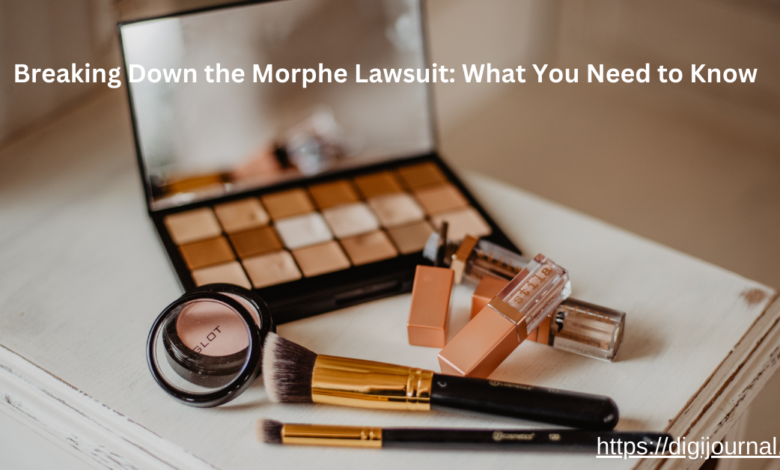Breaking Down the Morphe Lawsuit: What You Need to Know

In recent times, the Morphe lawsuit has emerged as a pivotal legal battle within the cosmetics industry, sparking discussions about product quality, consumer safety, and corporate responsibility. In this comprehensive article, we delve deep into the intricate details of the Morphe lawsuit, shedding light on its origins, implications, and broader implications for the cosmetics landscape.
Unveiling the Morphe Lawsuit
At its core, the Morphe lawsuit revolves around allegations of misconduct and negligence within the cosmetics company’s operations. From concerns regarding product quality to issues surrounding ingredient transparency, the lawsuit has raised significant questions about the integrity of the cosmetics industry as a whole.
Understanding the Allegations
The allegations leveled against Morphe encompass a range of issues, each with its own set of implications. From claims of misleading advertising to accusations of harmful ingredients, the lawsuit has brought to light various aspects of the cosmetics company’s practices that have come under scrutiny.
Product Quality Concerns
One of the central issues in the Morphe lawsuit revolves around the quality of the company’s products. Consumers have raised concerns about inconsistencies in product performance, ranging from issues with pigmentation to problems with product durability. These concerns have led to questions about the efficacy and reliability of Morphe’s cosmetics offerings.
Ingredient Transparency and Safety
Transparency regarding product ingredients is another key area of contention in the Morphe lawsuit. Consumers have alleged that Morphe failed to adequately disclose information about the ingredients used in its products, leading to questions about their safety and potential health risks. The lawsuit underscores the importance of transparency and accountability in the cosmetics industry, particularly concerning the disclosure of potentially harmful substances.
Ethical Considerations
Beyond product quality and safety, the Morphe lawsuit also raises broader ethical considerations within the cosmetics industry. Questions have been raised about Morphe’s sourcing practices, including concerns about animal testing, environmental sustainability, and fair labor practices. These ethical concerns highlight the need for greater accountability and responsibility among cosmetics companies, both to consumers and to the broader community.
Legal Ramifications
From a legal perspective, the Morphe lawsuit has significant ramifications for both the company and the broader cosmetics industry. Legal experts are closely monitoring the case, which could set important precedents regarding product liability, consumer protection, and corporate accountability. The outcome of the lawsuit may have far-reaching implications for how cosmetics companies operate and how they are held accountable for their actions.
Implications for the Cosmetics Industry
The Morphe lawsuit has sent shockwaves throughout the cosmetics industry, prompting other companies to reassess their own practices and procedures. The case has underscored the importance of transparency, integrity, and consumer trust in the cosmetics market, and has highlighted the need for greater regulatory oversight and accountability.
Consumer Awareness and Empowerment
Perhaps one of the most significant outcomes of the Morphe lawsuit is the heightened awareness and empowerment of consumers. As more information comes to light about the practices of cosmetics companies, consumers are becoming increasingly vigilant about the products they purchase and the companies they support. The lawsuit has empowered consumers to demand greater transparency and accountability from the cosmetics industry as a whole.
Moving Forward: Lessons Learned
As the Morphe lawsuit continues to unfold, it serves as a sobering reminder of the complexities and challenges inherent in the cosmetics industry. Moving forward, companies must prioritize the safety, transparency, and well-being of their consumers above all else. By learning from the lessons of the Morphe lawsuit, the cosmetics industry can work towards a future where trust, integrity, and accountability are the cornerstones of its operations.
Conclusion
In conclusion, the Morphe lawsuit represents a watershed moment for the cosmetics industry, highlighting the need for greater transparency, accountability, and consumer empowerment. As the case progresses, it is essential that all stakeholders, from companies to consumers to regulatory bodies, work together to ensure that the lessons learned from the Morphe lawsuit are not forgotten. Only by holding companies accountable and demanding greater transparency can we truly ensure that the cosmetics industry operates in the best interests of consumers and society as a whole.




